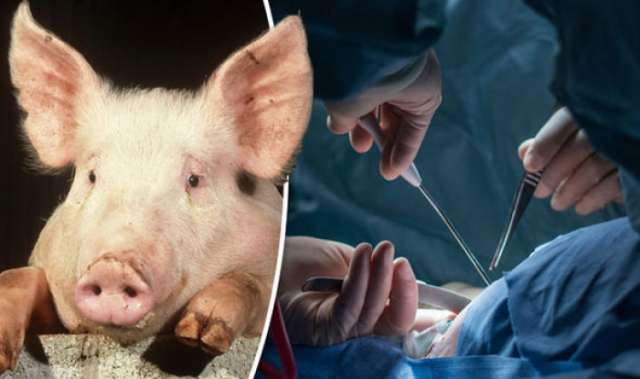He said: “The viruses are particularly troubling.
“Swine flu and ebola and HIV were all cases where the virus of the animal was in close contact with a human.
“Nothing could be closer contact than an organ in the middle of the body.”
Professor Church and his colleagues created genetically modified pigs with viruses unactivated in their DNA.
The new DNA was then put into an embryo and implanted into a surrogate sow.
According to the scientists, the piglets were born healthy and completely free of retroviruses.
Professor Church and his team are now hopeful that the technology may soon be trialled in people.
He added: “The very earliest clinical trials could be in two years.”
The news comes as more than 6,000 patients waiting for an organ transplant in the UK, according to Government figures.
Sally Johnson, NHS Blood and Transplant Director of Organ Donation and Transplantation said: “We’re encouraged that the number of people becoming donors has helped reduce how long desperately ill people wait before they receive a kidney transplant.
“However there is a still a severe shortage of donated organs. Two and a half years is far too long to wait for a kidney and far too many people die without ever receiving the transplant they need. “
But other scientists have cautiously applauded the study’s technical advances.
Bruce Whitelaw, from the University of Edinburgh, told the Times: “This tells us we can use these wonderful tools to chop up the genome at multiple sites and it goes back together in the right way.”
However he added “the main challenge is still to overcome the overall immune response”.
Meanwhile Ian McConnell, from the University of Cambridge, said: “The use of human organs for transplantation only meets a small percentage of the total and growing number of individuals in desperate need of organ transplantation.
“But the use of animal organs such is not without serious ethical concerns.”
In 2014 Margaret Mann, a retired carer from West Sussex, became the first patient in the world to have a heart valve made of pig tissue.
More about: #health
















































